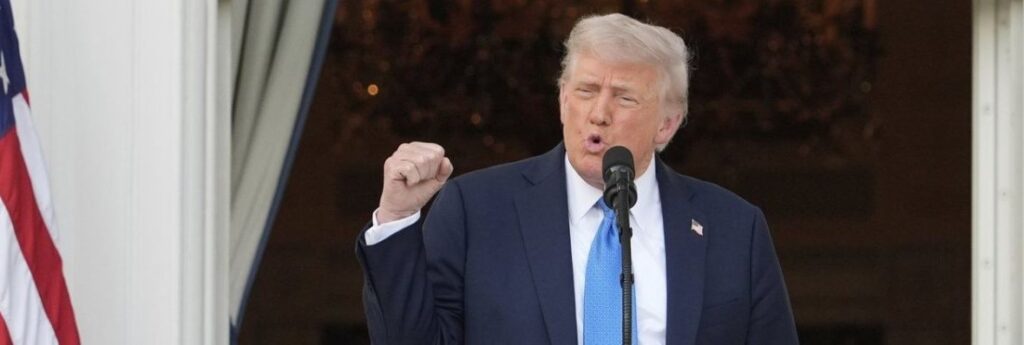U.S. President Donald Trump has resurrected a hallmark policy of his first term, announcing that citizens of 12 countries would be banned from visiting the United States and those from seven others would face restrictions starting June 9. Here’s what you may need to know, including its effect of dual citizenship Canadians.
The ban takes effect at 12:01 a.m., Monday – a cushion that may avoid the chaos that unfolded at airports nationwide when a similar measure took effect with virtually no notice in 2017.
Some, but not all, 12 countries also appeared on the list of banned countries in Trump’s first term. The new ban includes Afghanistan, Myanmar, Chad, the Republic of Congo, Equatorial Guinea, Eritrea, Haiti, Iran, Libya, Somalia, Sudan and Yemen.
There will be heightened restrictions on visitors from Burundi, Cuba, Laos, Sierra Leone, Togo, Turkmenistan and Venezuela.
In a video released on social media, Trump tied the new ban to Sunday’s terror attack in Boulder, Colorado, saying it underscored the dangers posed by some visitors who overstay visas.
Trump said some countries had “deficient” screening and vetting or have historically refused to take back their own citizens, adding, “We don’t want them.”
ACTA has produced a detailed synopsis of exactly what the ban means, including effects on hyphenated Canadians:
Full suspension of 12 countries
Afghanistan, Burma (Myanmar), Chad, Republic of the Congo, Equatorial Guinea, Eritrea, Haiti, Iran, Libya, Somalia, Sudan, Yemen
Impact: Complete ban on ALL visa types – both immigrant and non-immigrant
Partial suspension of 7 countries
Burundi, Cuba, Laos, Sierra Leone, Togo, Turkmenistan, Venezuela
Impact:
- All immigrant visas banned
- Specific non-immigrant visas banned: B-1/B-2 (tourism/business), F (academic students), M (vocational students), J (exchange visitors)
- Other visa types allowed but with reduced validity periods
Ban effective June 9
The ban takes effect June 9, 2025, at 12:01 AM Eastern Daylight Time.
- Clients must be inside the US before this deadline to avoid restrictions
- Existing valid visas issued before June 9 will NOT be revoked
- Anyone outside the U.S. without a valid visa on June 9 will be subject to the ban
Dual nationals
Dual nationals are EXEMPT if traveling on a passport from a non-banned country.
Examples:
- Iranian-Canadian travelling on Canadian passport: ALLOWED
- Iranian-Canadian travelling on Iranian passport: PROHIBITED
- Haitian-Canadian travelling on Canadian passport: ALLOWED
- Cuban-Canadian travelling on Canadian passport: ALLOWED
The passport used for travel determines eligibility, not the person’s nationalities.
Who is NOT affected?
The ban does NOT apply to:
- U.S. lawful permanent residents (Green Card holders)
- People already inside the U.S.
- Holders of valid visas issued before June 9, 2025
- Diplomatic visa holders (A-1, A-2, G visas, NATO visas)
- Athletes/teams traveling for major sporting events
- Certain family-based immigrant visas
Transit passengers
The ban applies even to transit through U.S. airports. Affected nationals cannot transit through the U.S. to reach other destinations.
Cruise passengers
Cruises with U.S. ports will be impacted. Affected nationals may be denied boarding even if the cruise doesn’t originate in the U.S.
Pre-existing bookings
Review force majeure clauses and travel insurance policies. The ban may qualify as a covered reason for cancellation.
If this article was shared with you by a friend or colleague, you may enjoy receiving your own copy of Travel Industry Today with the latest travel news and reviews each weekday morning. It’s absolutely free – just CLICK HERE.

